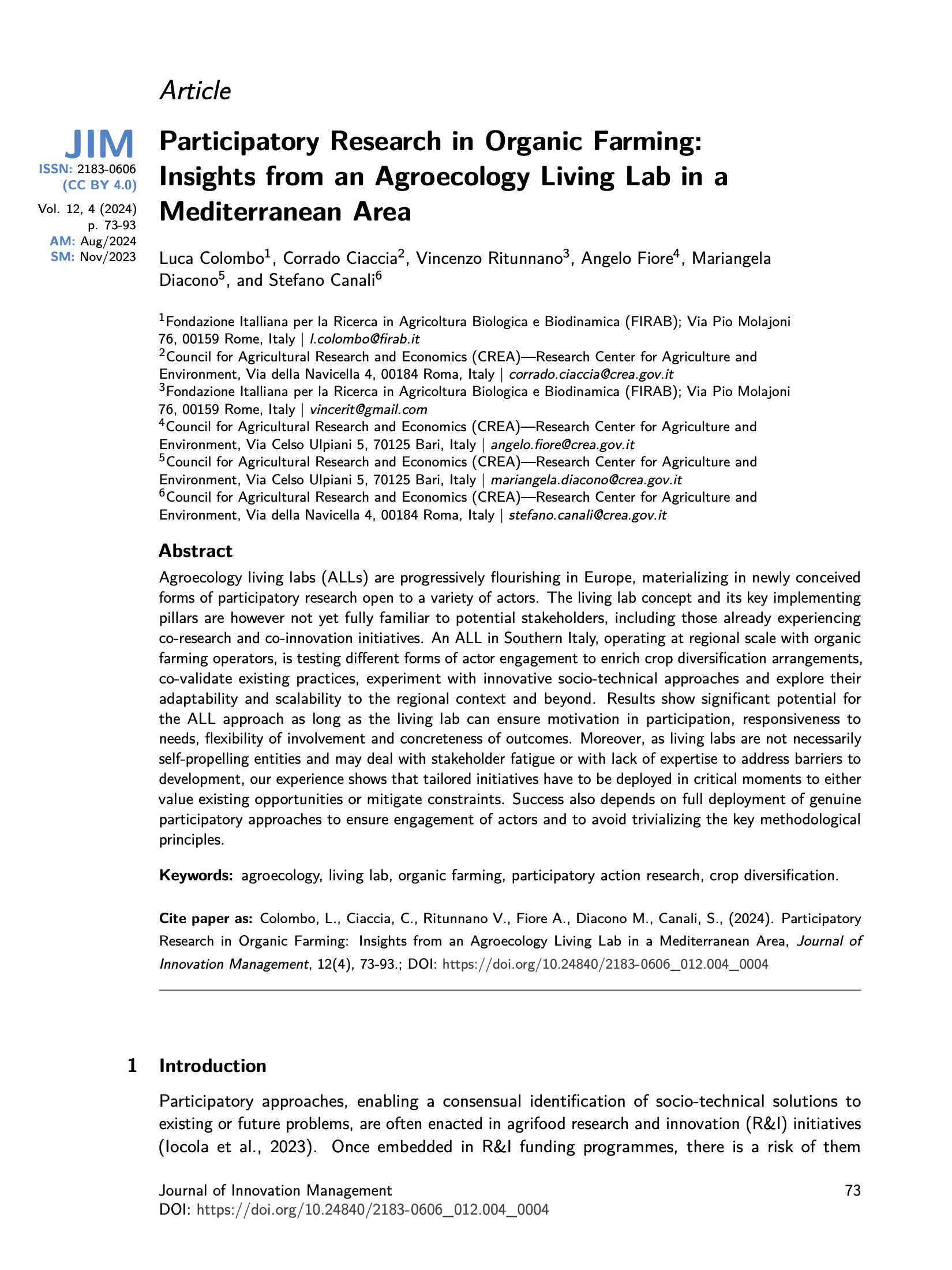Participatory Research in Organic Farming: Insights from an Agroecology Living Lab in a Mediterranean Area [Special Issue on Living Labs and Collaborative Innovation]
Main Article Content
Abstract
Agroecology living labs (ALLs) are progressively flourishing in Europe, materializing in newly conceived forms of participatory research open to a variety of actors. The living lab concept and its key implementing pillars are however not yet fully familiar to potential stakeholders, including those already experiencing co-research and co-innovation initiatives. An ALL in Southern Italy, operating at regional scale with organic farming operators, is testing different forms of actor engagement to enrich crop diversification arrangements, co-validate existing practices, experiment with innovative socio-technical approaches and explore their adaptability and scalability to the regional context and beyond. Results show significant potential for the ALL approach as long as the living lab can ensure motivation in participation, responsiveness to needs, flexibility of involvement and concreteness of outcomes. Moreover, as living labs are not necessarily self-propelling entities and may deal with stakeholder fatigue or with lack of expertise to address barriers to development, our experience shows that tailored initiatives have to be deployed in critical moments to either value existing opportunities or mitigate constraints. Success also depends on full deployment of genuine participatory approaches to ensure engagement of actors and to avoid trivializing the key methodological principles.
Article Details
Authors who publish with this journal agree to the following terms:
- Authors retain copyright and grant the journal right of first publication with the work simultaneously licensed under a Creative Commons Attribution License that allows others to share the work with an acknowledgement of the work's authorship and initial publication in this journal.
- Authors are able to enter into separate, additional contractual arrangements for the non-exclusive distribution of the journal's published version of the work (e.g., post it to an institutional repository or publish it in a book), with an acknowledgement of its initial publication in this journal.
- Authors are permitted and encouraged to post their work online (e.g., in institutional repositories or on their website) prior to and during the submission process, as it can lead to productive exchanges, as well as earlier and greater citation of published work (See The Effect of Open Access).

